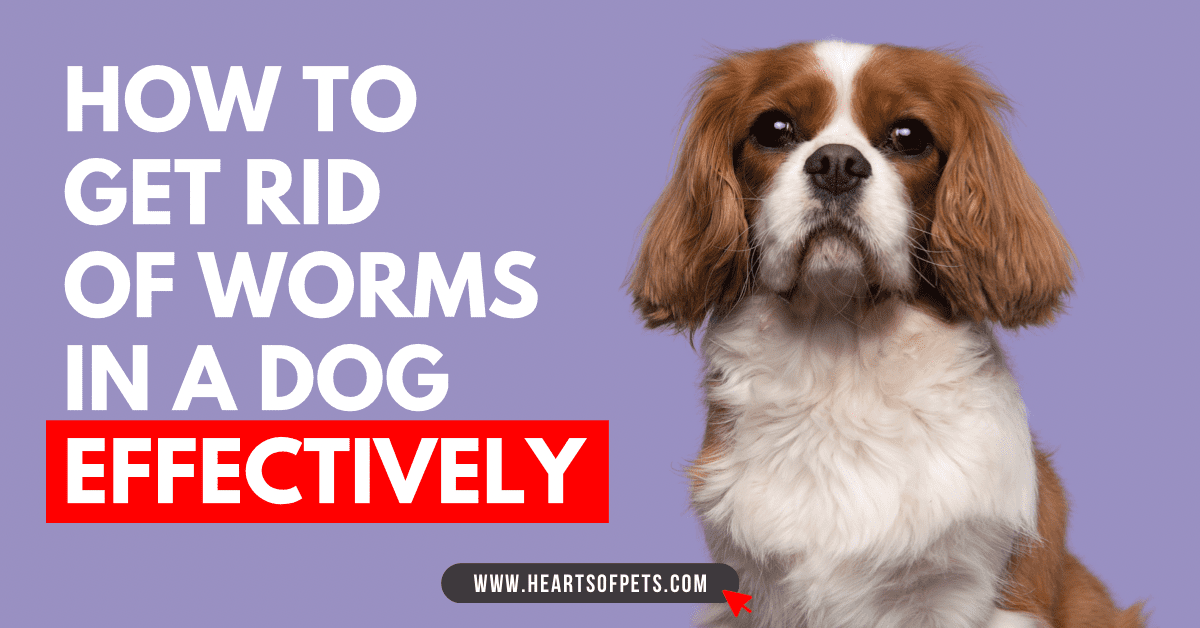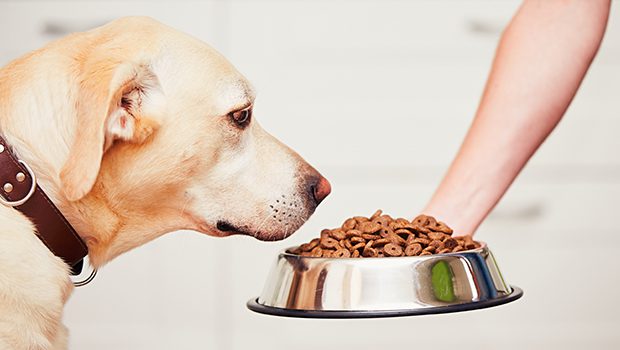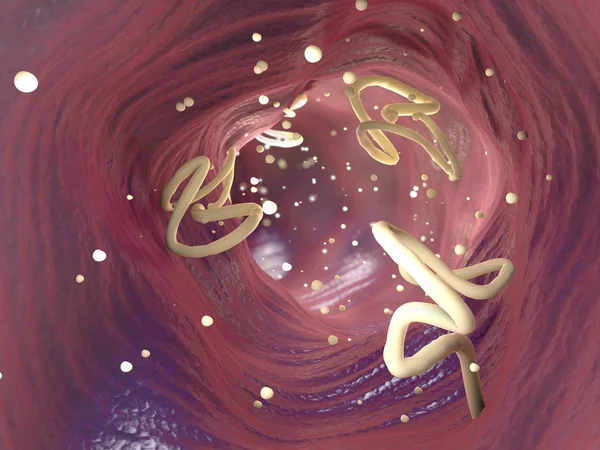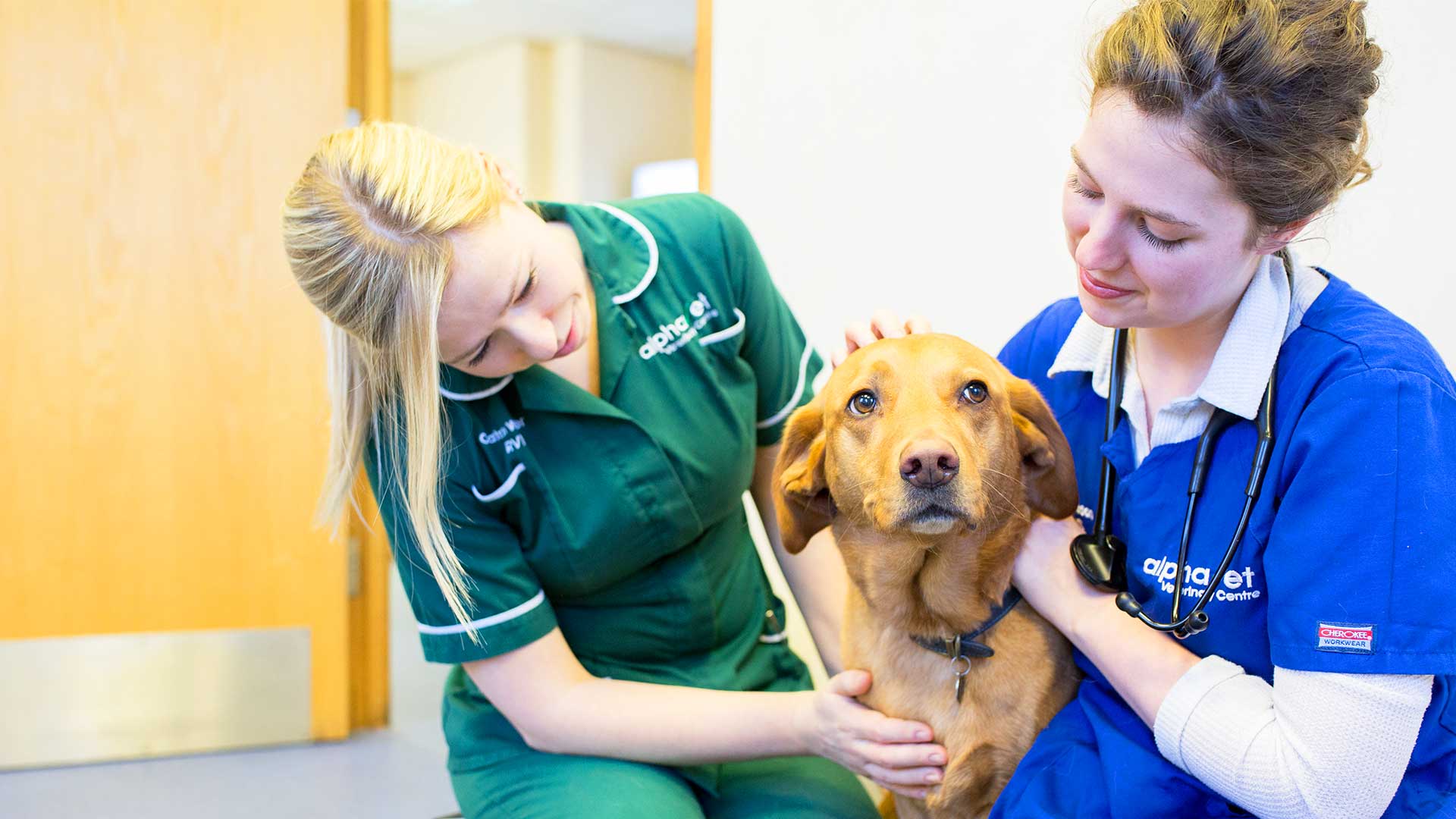
Worms can be deadly to dogs if left untreated, which makes it essential to know how to get rid of worms in dogs safely and effectively. Many different worms affect dogs, each requiring another course of treatment. Pet owners need to treat worms based on the size of their dog – small dogs and medium dogs require a much different course of treatment than larger dogs. Age plays a part, too – intestinal worms are common in puppies but can be far more concerning when found in adult dogs.
Worms are parasites that live inside your dog and are passed from host to host through the fecal-oral route, meaning they travel from dog to human or from human to dog through the ingestion of feces, also known as dog’s stool. While worms in dogs aren’t usually life-threatening, they can cause unpleasant symptoms like vomiting, diarrhea, loss of appetite, weight loss, heavy breathing, and coughing. Treating worms in dogs safely and effectively can minimize the symptoms and reduce re-infection chances.
Four main dog worms are found in infected canines: hookworms, adult roundworms, tapeworms, and whipworms (the rarest). When infected fleas bite a dog, they can leave worm eggs behind that grow in your dog’s intestines. There are no health benefits to having worms, and you want to eliminate worms from your dogs as soon as possible.
Worms are a common problem in dogs; owners need to get rid of them before they become too much of an issue. There are many safe and effective ways to kill worms in dogs, but some of these ways may be more dangerous than others. In this guide on how to get rid of worms in dogs, we’ll teach you how to safely use the right treatments to cure your dog’s worm infection so he can live a happier, healthier life.
Signs of Dog Worm Infections

The most common sign that your dog has worms is if they’re eating more than usual but not gaining any weight. Other symptoms of having intestinal parasites include, but are not limited to: a dull coat, vomiting, diarrhea, coughing, and listlessness, in addition to your dog scooting around the floor and dragging their butt. If you notice these signs, take your dog to the vet for a check-up. There are many types of worm infections, so it’s essential to know which one your dog has before treating them.

Most dogs can easily be treated with dog deworming medications, available through your veterinarian. You want to combat worms as soon as possible, as the longer they linger in your dog’s small intestine, the more likely they are to host worm eggs, which is a far worse scenario.

If you don’t want to go through this process with your vet, some over-the-counter medications like deworming tablets or liquid wormer can be used at home. However, talking with your veterinarian before using anything on your own is important because side effects can occur with both over-the-counter and prescription medication. Your vet will be better able to diagnose worms than you as a dog owner, so pass on the natural remedies and eliminate worms as soon as you can.
Regular deworming treatments usually do the trick and can effectively clear intestinal worms. You can also give your dog preventative treatments, so they never get worms. Contracting worms is not fun for dogs or pet parents, so let’s just prevent worms in the first place for fewer concerns down the road.
Understanding Tapeworm Symptoms in Dogs

The most common symptom of tapeworms in dogs is scooting or dragging their butt along the ground. The worms irritate the dog’s intestines, causing them to itch. Other symptoms include weight loss, poor coat condition, vomiting, and diarrhea.

If you notice any of these symptoms in your dog, take them to the vet for a checkup. The following are some of the most common types of worms found in many dogs and steps you can take to get rid of them quickly and effectively with minimal risk to your pup’s health.
Identifying Hookworm Symptoms in Dogs

If you notice your dog is losing weight, has a poor appetite, or is having difficulty defecating, these could be signs of hookworms or another intestinal parasite. Other symptoms include anemia, diarrhea, and lethargy. If you think your dog may have hookworms, tiny and thin worms with hook-shaped mouths, take them to the vet for a diagnosis, bringing a stool sample along with you. Once there, they will need to do a fecal test. If this returns positive for worms, your vet will prescribe medication and instructions on administering it.
Know the Common Symptoms of Heartworms

The first step is to know the common symptoms of heartworms so you can be on the lookout for them. Heartworms are transmitted through mosquito bites, so your dog is at a higher risk if you live in an area with many mosquitoes. Some common symptoms include coughing, lethargy, weight loss, and difficulty breathing. If you notice these symptoms, take your dog to the vet immediately.
You can prevent worms by taking a natural dewormer that your vet will prescribe each month. These meds are healthy for your dog’s body and keep your dog’s internal organs safe from the repercussions of getting the worms mentioned. Several readily available prevention methods and some natural remedies include consuming vegetable juice, pumpkin seeds, apple cider vinegar, and other items that promote a healthier gut in your dog.
Dog worms in a pregnant dog

One of the saddest places to find dog worms is within a pregnant dog. Not only does it affect her health, but it contaminates the breast milk she needs to feed her puppies. Her puppies will not get the nutrients they need, resulting in poor growth and the possibility of all the puppies being born with dog worms.
How to Easily Get Rid of Worms in Dogs

You can take a few easy steps to get rid of dog worms. Consult your veterinarian to determine the best course of treatment for your dog. Follow your vet’s recommendations for deworming medication and frequency. Keep your dog away from areas where other dogs may have been infected with worms. Practice good hygiene by washing your hands after handling your dog or their waste.
1. Understand the types of worms that can infect dogs to identify which type your dog has.
2. Learn the symptoms of a worm infection so you can take action as soon as possible.
3. Choose the proper worming medication for your dog based on weight and age.
4. Follow the instructions on the worming medication packet carefully.
5. Monitor your dog for any adverse reactions to the worming medication.
6. Do not permit your dog to eat another dog’s stool, contaminated soil, or fermented vegetables, as all can contain tapeworm eggs or roundworm eggs which can then attack your dog’s immune system.
7. Always seek medical treatment if you notice a bloated belly, scooting, or other symptoms that could indicate your dog has worms in their intestinal tract. A few signs are more noticeable than others but left untreated, you could end up with an intestinal blockage or permanent damage to your intestinal wall.
Giving Your Dog a Flea and Tick Bath
The best way to get rid of worms in dogs is to give them a flea and tick bath. This will help kill the worms and their eggs. You will need mild dish soap, warm water, a clean towel, and a dog brush. Wet your dog’s fur with warm water and lather them with dish soap. Be sure to avoid their eyes, nose, and mouth. Rinse your dog off thoroughly, then dry them with a clean towel.
Using Ginger as a remedy
Ginger is a safe and effective remedy for worms in dogs. Mix fresh ginger root with water and give it to your dog orally. The dose will depend on your dog’s size, but start with a small amount and increase as needed. You can also add ginger to your dog’s food. Consult your veterinarian if you do not see results within a few days. The vet may prescribe deworming medication that is safe for your dog.
Coconut oil aids digestion and treats worms.
Give your dog one teaspoon of coconut oil per 10 pounds of body weight, mixed into their food. You can do this for three days, then reduce the frequency to once a week. Coconut oil in a dog’s diet aids digestion and treats worms by helping to kill them and expel them from the body. The lauric acid in coconut oil is especially effective against Giardia, a common type of intestinal worm.
How to Prevent Your Dog From Getting Worms

The best way to prevent your dog from getting worms is to practice good hygiene and keep them away from other sick animals. You should also have them regularly checked by a veterinarian and deworm them as needed. If you think your dog has worms, take them to the vet so they can be adequately diagnosed and treated.

Dogs are more likely to contract worms at dog parks, so that’s something to be aware of when you take them. If there is contaminated soil and your dog is eating it, or they’re god forbid eating another dog’s poop at the park, that is one common way they may end up getting parasitic worms.
Regular worming is necessary for healthy dogs. Some vets recommend giving a puppy an annual deworming medication every year until they are three years old, while others recommend administering wormers monthly. There are also many natural ways to discourage flea larvae from entering your dog’s body and growing into adult worms in the first place. Many dog owners swear by certain dietary additions you can make, such as apple cider vinegar, to help fend off dog worms in the first place.
Final Thoughts
Though trying a home remedy or over-the-counter medication may be tempting, you must talk to your veterinarian first. They will know if any particular circumstances need to be taken into account. For example, if you have multiple dogs living together, they may all need treatment with different medications.
Frequently Asked Questions
What kills worms in dogs instantly?
Pumpkin seeds. Pumpkin seeds contain the amino acid cucurbitacin, which makes them a highly powerful deworming agent. The worms become paralyzed as a result, making them simple to remove from the intestine.
What kills worms in dogs naturally?
Veggies high in fiber that also function as natural dewormers include carrots, beets, bananas, apples, coconuts, and papaya. Healthy dog treats made with these fruits and veggies' goodness are very helpful for their diet. It will keep your dog healthy and worm-free if you include it in their regular diet.
How do you stop worms infestation in dogs?
The best way to prevent a worm infestation is by routine prevention, such as using a monthly parasite control product recommended by your veterinarian. To prevent your dog against fleas, mosquitoes, and several sorts of worms, you can give them oral chews and topical spot treatments once a month.
Can I treat my dog for worms without going to the vet?
One natural worm treatment method is to give your dog fermented veggies. It is advised to consume 1 to 3 teaspoons of fermented veggies daily for every 20 pounds of body weight. As a home medicine for worms, black cumin seeds and pumpkin seeds have both been helpful.







